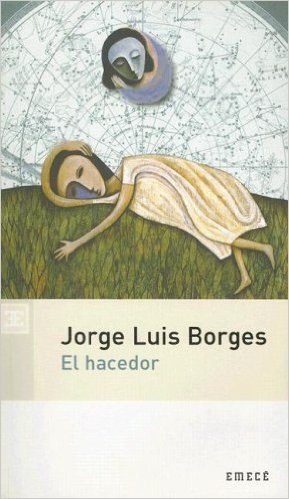 Borges’ “Borges and I” is such a wonderful piece of metafiction that I will just reproduce it whole for you here, with just enough of a comment to suggest that writing writes the writer, as I discussed in Who is Writing This? and It’s All Fiction, in which I discuss how every piece of writing requires the invention of a speaker, even a dictionary entry (the “nobody” speaker), so the requirements of the piece determines the voice and therefore the speaker. In the short fiction below, Borges is talking about how his fame has taken over his life (or, as Foucault would put it, his author function, his reputation as a great writer, has erased the real person).
Borges’ “Borges and I” is such a wonderful piece of metafiction that I will just reproduce it whole for you here, with just enough of a comment to suggest that writing writes the writer, as I discussed in Who is Writing This? and It’s All Fiction, in which I discuss how every piece of writing requires the invention of a speaker, even a dictionary entry (the “nobody” speaker), so the requirements of the piece determines the voice and therefore the speaker. In the short fiction below, Borges is talking about how his fame has taken over his life (or, as Foucault would put it, his author function, his reputation as a great writer, has erased the real person).
It’s Borges, the other one, that things happen to. I walk through Buenos Aires and I pause–mechanically now, perhaps–to gaze at the arch of an entryway and its inner door; news of Borges reaches me by mail, or I see his name on a list of academics or in some biographical dictionary. My taste runs to hourglasses, maps, eighteenth-century typefaces, etymologies, the taste of coffee, and the prose of Robert Louis Stevenson; Borges shares those preferences, but in a vain sort of way that turns them into the accouterments of an actor. It would be an exaggeration to say that our relationship is hostile–I live, I allow myself to live, so that Borges can spin out his literature, and that literature is my justification. I willingly admit that he has written a number of sound pages, but those pages will not save me, perhaps because the good in them no longer belongs to any individual, not even to that other man, but rather to language itself, or to tradition. Beyond that, I am doomed–utterly and inevitably–to oblivion, and fleeting moments will be all of me that survives in that other man. Little by little, I have been turning everything over to him, though I know the perverse way he has of distorting and magnifying everything. Spinoza believed that all things wish to go on being what they are–stone wishes to be stone, and tiger, to be tiger. I shall endure Borges, not in myself (if, indeed, I am anybody at all), but I recognize myself less in his books than in many others’, or in the tedious strumming of a guitar. Years ago I tried to free myself from him, and I moved on from the mythologies of the slums and outskirts of the city to games with time and infinity, but those games belong to Borges now, and I shall have to think up other things. So my life is a point-counterpoint, a kind of fugue, and a falling away–and everything winds up being lost to me, and everything falls into oblivion, or into the hands of the other man.
I am not sure which of us it is that’s writing this page.
(To read more about the artificiality of an author’s image, read my book Narrative Madness, available at narrativemadness.com or on Amazon and my posts “In the Name of the Book, In the Name of Cervantes, Amen”, “Who Wrote Don Quixote?”, “How to Sound Like a Writer of Great Reading, Learning and Eloquence: A Quixotic Preface”, and “Chaucer: A Bad Poet and a Didactic Bore.”)
Borges, Jorge Luis. “Borges and I.” Collected Fictions. Tran. Andrew Hurley. New York: Penguin Books, 1998.
Is that you Ron or is that Ronosaurus?
Hi Ron the more I read the shorter ID’s lead And I thought ZEN was bad for him Dave